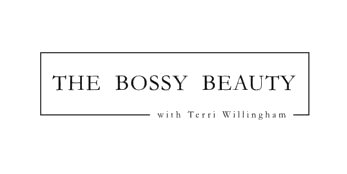Thinning Hair After 40: What’s A Woman To Do?
Thinning hair is not a fun reality for any woman. As we age, we deal with hormonal changes, skin that is not as firm as it used to be and those few extra pounds we can’t quite get off so that moment when you look in the mirror and notice your hair is not as thick and luxurious as it used to be can be a real downer.
For some, thinning hair may run in your family and while you can’t rewrite your DNA code, that doesn’t mean you have to completely throw in the towel just yet. These lifestyle and product changes may help:
Chronic Stress
Life is crazy stressful for most of us and chronic stress and anxiety can reap havoc on your body including your hair. Stress can cause many conditions that lead to hair loss.
These include:
Alopecia Areata – Sudden loss of large clumps of hair in areas around your scalp.
Telogen Effluvium – This is a condition where more hairs than normal prepare to fall out.
Trichotillomania – This is a habitual condition caused by stress and anxiety where the person pulls out hairs without realizing it.
While it can be difficult, or near impossible, to eliminate all stress from our lives, having a stress management plan is key.
Hair Care (or a lack of)
How we take care of our hair (or don’t) has a lot to do with how it looks. Over washing and brushing, the use of products with harsh chemicals, heating tools, over coloring and trips to the salon can all factor into hair loss. It’s important to be mindful of what you are putting on your hair and how often.
Look for products that are more natural or botanical based and steer clear from any products with ingredients like isopropyl alcohol, mineral oil, PEG-Polyethylene Glycol, Propylene Glycol (PG), Sodium Lauryl Sulfate (SLS) and Sodium Laureth Sulfate (SLES), Chlorine, DEA (Diethanolamine), MEA (momoethanolamine), and TEA (Triethanolamine), FD & C Color Pigments and Imdiazolidinyl Urea and DMDM Hydantoin (just two of the many preservatives that release formaldehyde).
Nutrition From The Inside Out
If you have ever heard the expression “you are what you eat” it’s 100% truth. What we put into our bodies greatly reflects what we see on the outside. A diet full of refined sugar and junk leads to not only weight gain and skin issues but can also affect our hair health. Eating a diet rich in fruits, vegetables and omega-3 fatty acids can do wonders for the body from the inside out.
There is an abundance of foods that can help keep your locks shiny and healthy like these (just to name a few):
• Eggs Provide Protein
• Spinach and Other Dark Leafy Greens Provide Iron
• Citrus Fruits to Get Your Dose of Vitamin C
• Nuts and Seeds for Omega-3 Fatty Acids
• Whole Grains to Obtain Biotin
• Carrots are Rich in Vitamin A
• Avocado Offers Vitamin E
If you are looking for a high-quality supplement that can help support healthy hair be sure to check out the S3™ Supplement Support System.
Hydration
We know that water is essential for our bodies, but how does it affect our hair? Like the rest of our body, our hair is made of up cells and water is vital to cell growth and providing important nutrients. When our bodies are dehydrated, it functions less efficiently and can not only hinder hair growth but also lead to hair loss.
Think of your hair like your skin. When you’re dry and chronically dehydrated, your skin can become dry and cracked. The same goes for hair, even though it’s made of dead cells, the actual hair follicles are alive and creating cells and need hydration to produce stronger cells. So it’s important to stay properly hydrated throughout the day to promote healthy, strong hair.
Add Volume
Adding volume to your hair can help minimize the look of thinning hair while you work on changes that will take some time to see results, like diet and lifestyle.
If you continue to experience hair loss even after working on making positive changes to managing stress levels, addressing nutrition and vitamin deficiencies, it may be a sign of an underlining illness. Trust your body and be sure to talk to your doctor.
Were these tips helpful? What changes are you going to implement this week to help encourage a healthier head of hair? Leave me a comment, would love to hear from you!
